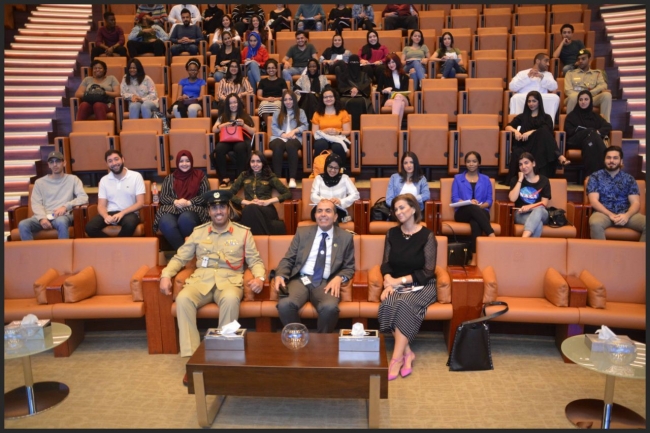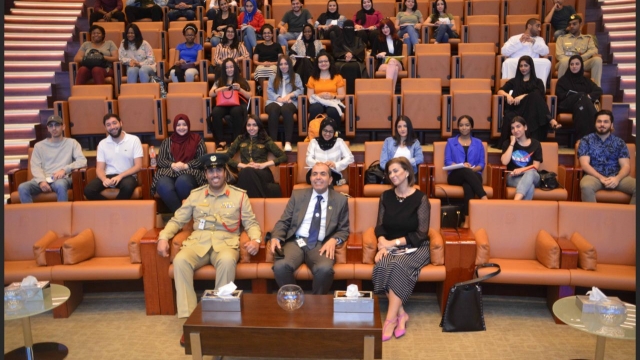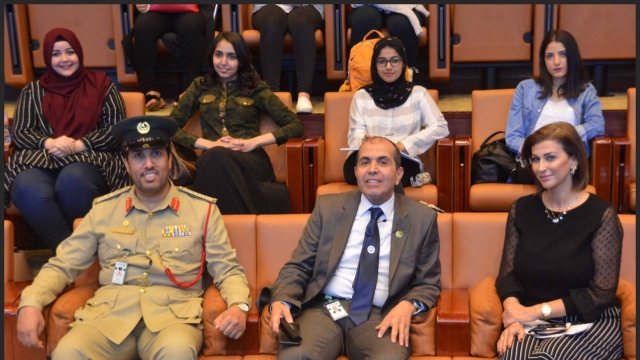Dubai, March 21st, 2018, Dubai Police General Headquarters: CUD students from the Communication and Media Studies Department visited the General Department of Forensic Science and Criminology with Assistant Professor Dr. Ghada Abaido.
The purpose of the visit was to enhance students’ understanding of the interaction between the police force and media, providing deeper insight into the general field of forensic science, the role of the forensic scientist, the function of their laboratory and the role of the Dubai Police in the discovery and completion of a case.
Established in 1981, the Dubai Forensic Science Laboratory processed 43,000 cases in 2017 – a huge increase from the five cases it handled when it first opened. While this department mainly covers Dubai, it supports the northern emirates of Sharjah, Ras Al-Khaimah, Umm Al-Quwain and Ajman when necessary.
The visit was led by Dr. Fuad Ali Tarbah, Senior Forensic Toxicologist and Director of the Training and Research Department. In this field, the storage and preservation of evidence are key elements that lead to the truth. Forensic evidence can take the form of witness statements, confessions or physical evidence. Dr. Fuad explained that for a scientist, evidence is the most valuable asset to the entire lab. “If the forensic scientist loses his evidence, he is no more a forensic scientist,” said Dr. Fuad.
After emphasizing the “no photography” rule for guests and adding some humor to the tour while describing criminals’ varying IQ levels, Dr. Fuad presented a series of interesting stories with visuals showing dozens of mobile chargers filled with small pouches of heroin totalling 10 kg., bouquets of plastic flowers filled with heroin in their plastic-wrapped stems and eggs containing drug pills.
He explained in detail the physical and emotional effects of alcohol as well as certain other drugs such as marijuana, heroin, and cocaine. In describing the legislation associated with the consumption of such substances, he highlighted the various tools that scientists use to uncover evidence of substance abuse, including hair analysis and urine and blood tests. Dubai police officers also have access to global databases to help solve international crimes.
In a nation constituting of people from over 200 countries, the Forensics Department seeks to serve justice through science.


